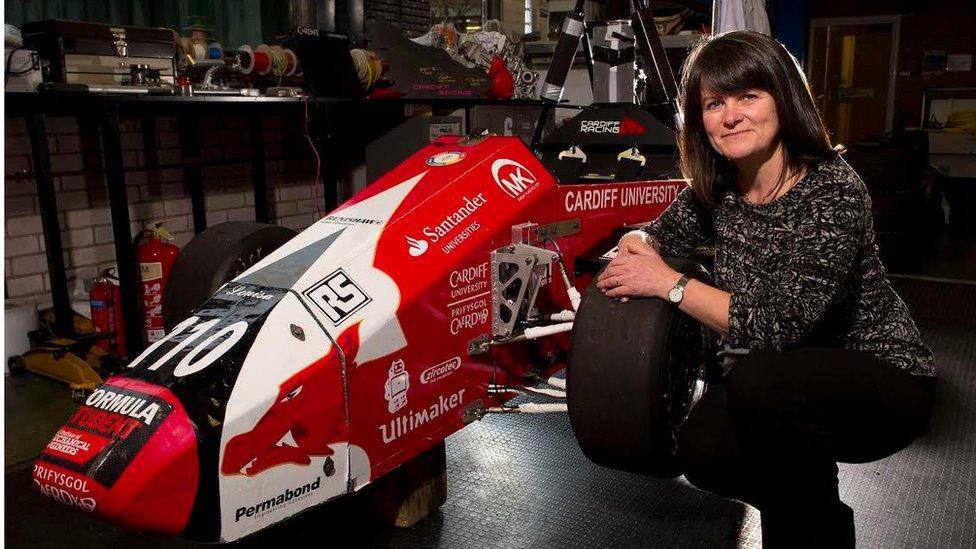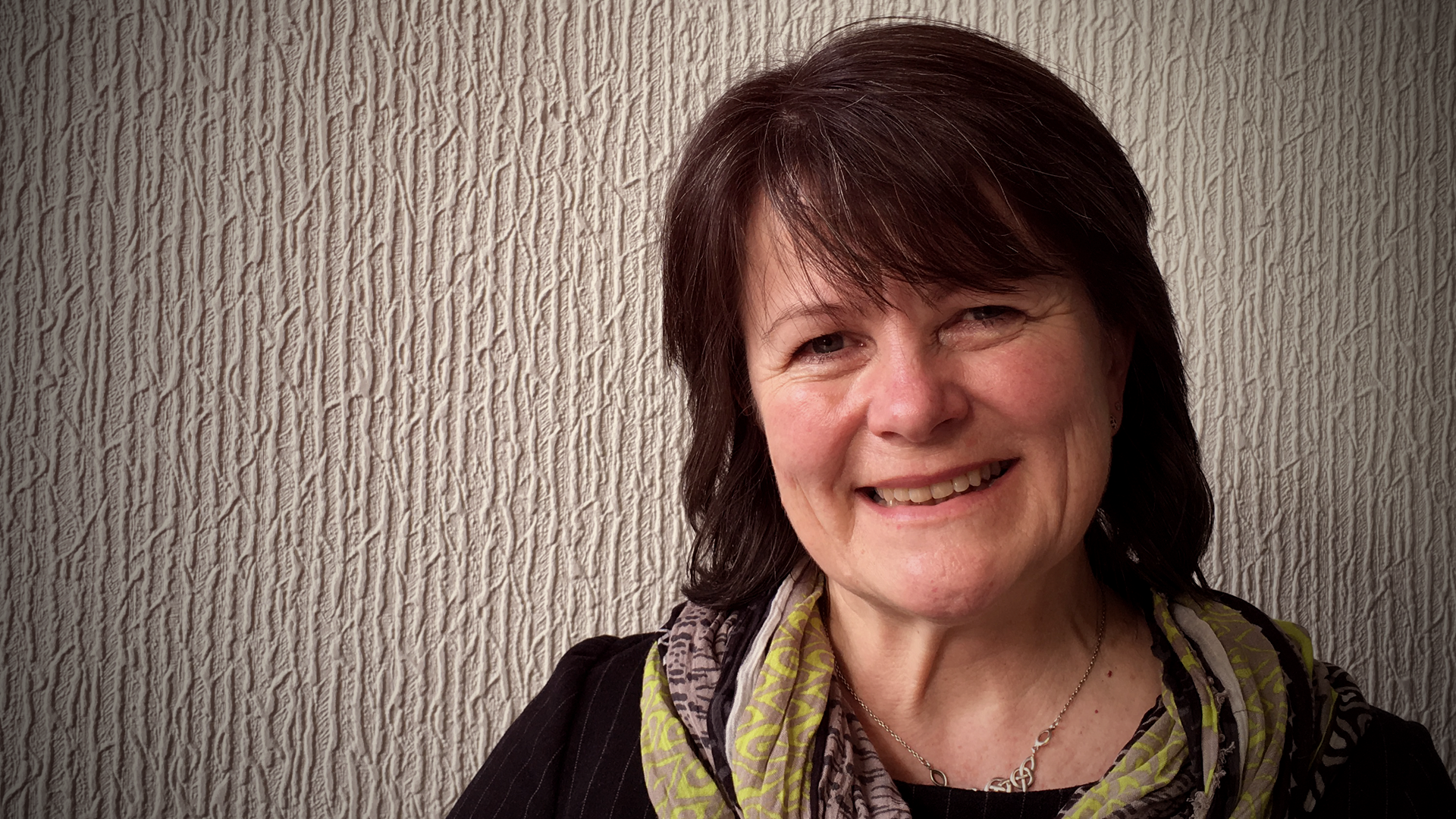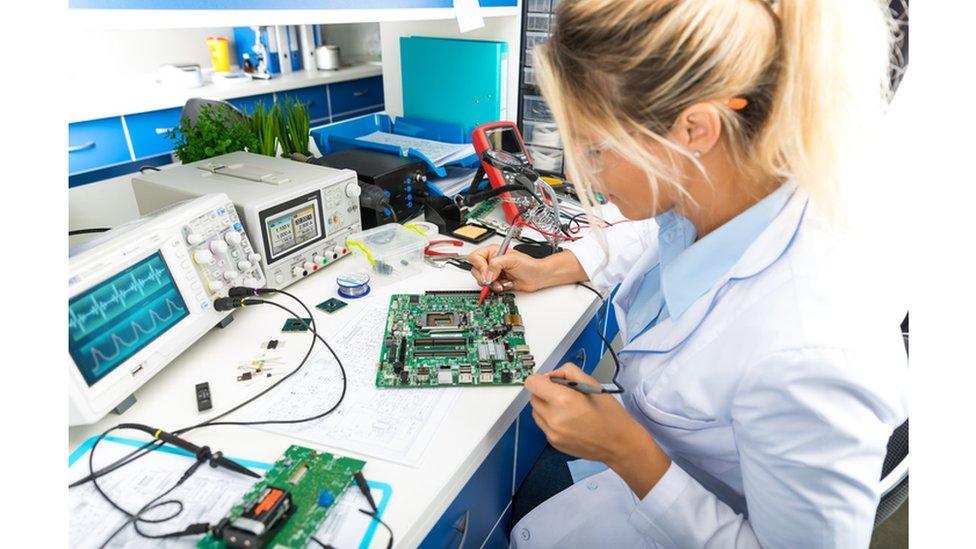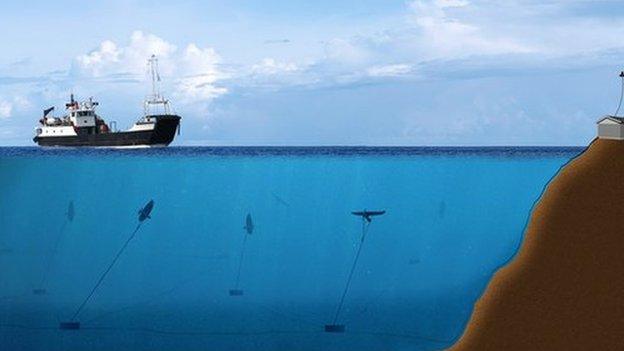How women can change the world in 'year of engineering'
- Published

Karen Holford forged a career in engineering from her love of Formula One racing
This year is the UK's 'Year of Engineering', aiming to tackle the engineering skills gap and widen the pool of young people joining the profession.
Here, Karen Holford, deputy vice-chancellor of Cardiff University and recently awarded a CBE for services to engineering and advancement of women in science, explains how engineers can change the world.
Slowly but surely, the numbers of girls taking up engineering is rising.
At Cardiff University, we are ahead of the game, with 23% of our engineering undergraduates being women, compared to the typical figure of 13%.
Last year saw a one percentage point increase in girls studying science, technology and engineering (Stem) subjects at A-level, from 34% to 35%., external
In Chemistry, girls now make-up more than half of students, while the number of girls taking up apprenticeships has also risen by 6%.
Yet still more needs to be done to attract youngsters to engineering careers, and specifically girls, who, after all, out-perform boys in Stem subjects at GCSE.
Teenagers, more often than not, want to change the world and create a fairer society.
So we need to tell them and their parents - that's what engineers do.
We're the ones concerned with water security, clean energy and combating global warming.
We install solar panels in remote African health posts so people have access to electricity and solar fridges to store life-saving vaccines.
We design better sanitation systems for refugees, clever bike lights to make cycling safer and innovative tools to help disabled people live fuller lives.
Plus, of course, we also design and build amazingly fast Formula One racing cars - fun and altruistic too, as these designs often end up improving fuel economy in conventional transport.
It is from these cars that my own love of engineering was born.
Growing up in the Forest of Dean, my parents both loved motor sports and frequently took myself and my three sisters to watch F1 and motorcycle racing at Silverstone.
I loved the speed and beauty of the machines, the noise of the engines, the excitement of the race strategy and, above all, the team spirit.

Karen Holford is advancing women in science and engineering
Despite being discouraged at school from following a career in engineering, when I left aged 18, I applied for an undergraduate apprenticeship with Rolls-Royce.
The company then paid for me to study a four-year degree in mechanical engineering at Cardiff University while learning on the job.
This gave me a brilliant start to my career and some incredible experiences, including during the Falklands War of 1982, where we worked non-stop stripping and rebuilding Pegasus engines for the Harrier Jump Jets, which were used extensively in the campaign.
After completing my PhD, also at Cardiff University, I then worked at Newport's AB Electronic Products Technology Centre, designing innovative car systems, including a new pressure sensor for BMW's anti-lock braking system.
It's because I have had such an interesting career, that I am so passionate about trying to recruit other women and girls.
In Wales, in particular, the opportunities are growing all the time.
Not only do we have a booming electronics and software industry, we have Aston Martin creating 750 skilled engineering jobs.
We have a vibrant renewables industry, plus a nuclear power station on Anglesey and hopefully the tidal lagoon in Swansea.

A female electronic engineer testing computer motherboard in a laboratory
Yet still the message is struggling to get through.
UK-wise, just one in ten engineers is female, the lowest rate in Europe, and anecdotally, this seems even worse in Wales - perhaps because the industry has for so long been associated with the macho dirty world of coal and steel.
We also have work to do in our schools - Welsh schools are below the average of 72 countries in science and maths.
Fundamentally, this needs to change, because it is hurting the Welsh economy.
In 2016, we had a shortfall of 600 Stem academic positions - posts which could easily be filled by talented women.
Across the UK, extra female scientists could be worth £2bn to the economy.
There are things we can do, however.
In 2015-16, I co-authored a report called Talented Women for a Successful Wales, external, advising the Welsh Government on how to recruit, retain and promote women in Stem.
Problems start young - with girls not being given toy trains and cars to play with.
At secondary school, some teachers lack critical skills - teaching physics, for instance, when they don't have an A-Level in it themselves.
Companies, too, need to embrace flexible working for men and women to ensure the burden of childcare is shared equally and women aren't out of the workplace.
Personally speaking, the fact my husband looked after our two children when they were young is the main reason why my career has flourished.
This week, I begin my role as an ambassador for the UK's 2018 Year of Engineering, external.
I hope my appointment can shed more light on engineering in Wales and champion it as a great career for all, but especially girls.
- Published24 May 2017

- Published20 May 2015
